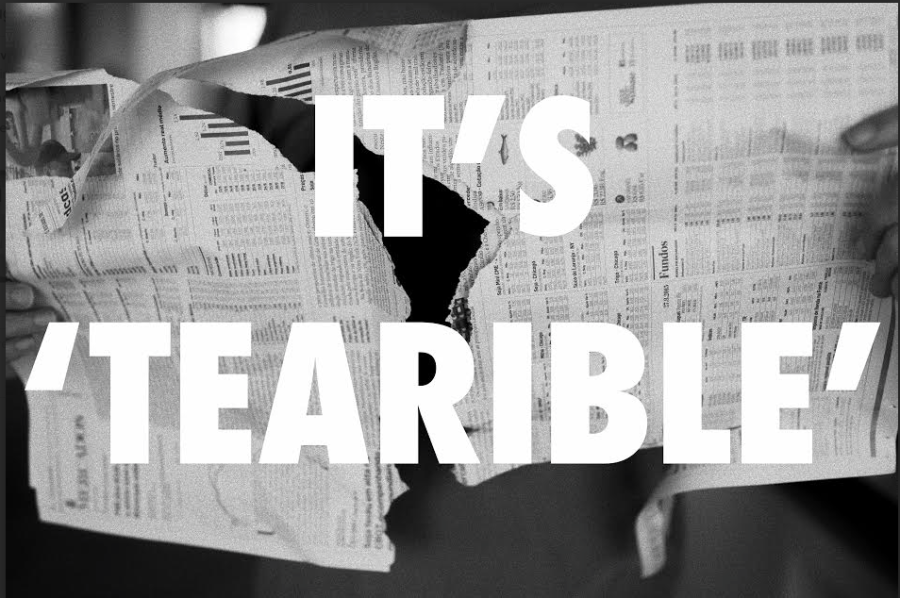A pun-derstandably bad mindset
Before you leave, groaning to yourself and rolling your eyes, hear me out. A pun, also known as paronomasia, is a literary device that suggests two different meanings through the use of their phonetic similarities. It is most commonly used to demonstrate some form of humor or wit though a very distinct similarity between the word’s sound and the possible duality of meanings. The use of puns is varied, from the morbid political humor of Benjamin Franklin, supposedly during the signing of the Declaration of Independence, –“We must all hang together or assuredly we shall all hang separately”– to the bawdy visual puns found in Ancient Egyptian Hieroglyphs. Great writers like Cicero and Shakespeare believed them to be a sign of intellectual wit and frequently utilized them in their works. Unfortunately, such an art has fallen into disfavor throughout the years, eliciting silent curses and inward contempt toward the speaker.
It is believed that the pun first began to suffer widespread public disdain during the period of the Enlightenment, when its perceived lack of sophistication clashed with the ideals of rationalization and refined behaviors. This idea was reinforced through history by many, but most notably through English dramatist John Dennis’s famous quotation: “Punning is the lowest form of wit.” It is said that he had exclaimed this very phrase as he stormed out of a room in anger after a particularly infuriating pun. From then on, it seems that puns have suffered a steady decline in high society, being banished to the plebeian equivalent of language.
Many have attempted to pinpoint human’s gravitation towards puns in a logical fashion. One such example would be Sigmund Freud, an Austrian psychoanalyst who proposed that puns were an admission of weakness, a sort of humoristic release valve for one’s repressed unpleasant truths. This release would serve to alleviate emotional stress in a harmless manner. Shakespeare’s use of puns illustrates this idea well. In his plays, puns were usually spoken by commoners mocking those in a higher social standing without breaching the laws of etiquette by being rude to their betters. These puns allowed the characters an outlet to their repressed anger and to allude to taboo subjects like wanton violence or sexual intercourse in an otherwise respectable setting. In contrast, humor theorist Charles Gruner argues that it is, in fact, a human’s natural tendency toward competition, which explains most people’s negative reaction to a pun; that groan is just an expression of irritation as a result of being outplayed and having someone assert his linguistic superiority over you. This ties nicely with Edgar Allan Poe’s take on puns, “The goodness of a true pun is in direct ratio to its intolerability.” The more irritating the pun – the more superiority the punmaker is trying to assert over the audience.
In more recent times, puns have resurfaced as a respectable art by many. Winner of the 1995 O. Henry Pun-Off World Championship, John Pollack is a modern advocate of the skills required for successful wordplay. Author of the book The Pun Also Rises, Pollack takes pride in his linguistic talent of verbal manipulation. He argues that puns are valuable for their ambiguity and their ability to stack multiple layers of meaning into fewer words, which is particularly helpful when one attempts to convey complex ideas. He also explains how English is particularly friendly to punsters since the language has over a million words from which to choose due to its hybrid origins and the mixture of several languages.
It’s true that puns can be a bit…annoying. However, one cannot deny the skill required to craft a particularly intelligent pun on the fly; and like sign language, it’s quite handy. So why not try it out? Who knows, you might begin to appreciate your punny side.

Now banished to the POV section, as Features grew sick of his terrible puns, Lucca will spend his second year in The Talon furthering his plans for pun...










Tibet Alptekin • Aug 31, 2015 at 7:05 pm
This article was punderful! If Shaquille O’Neal read this article, he would be overly emotional and be Shaquille O’Feel. 🙂